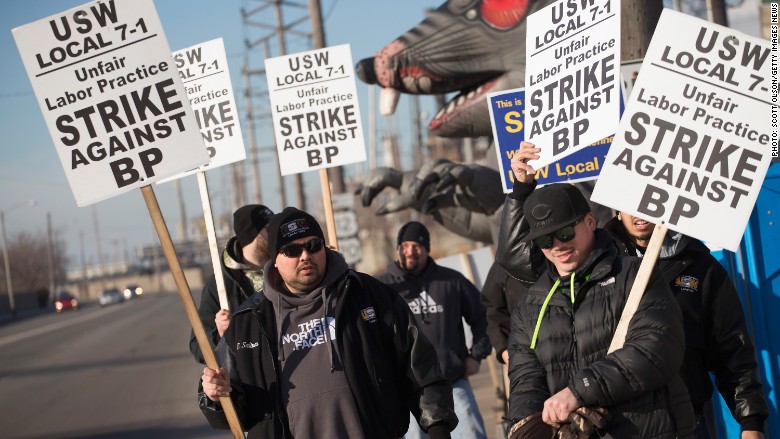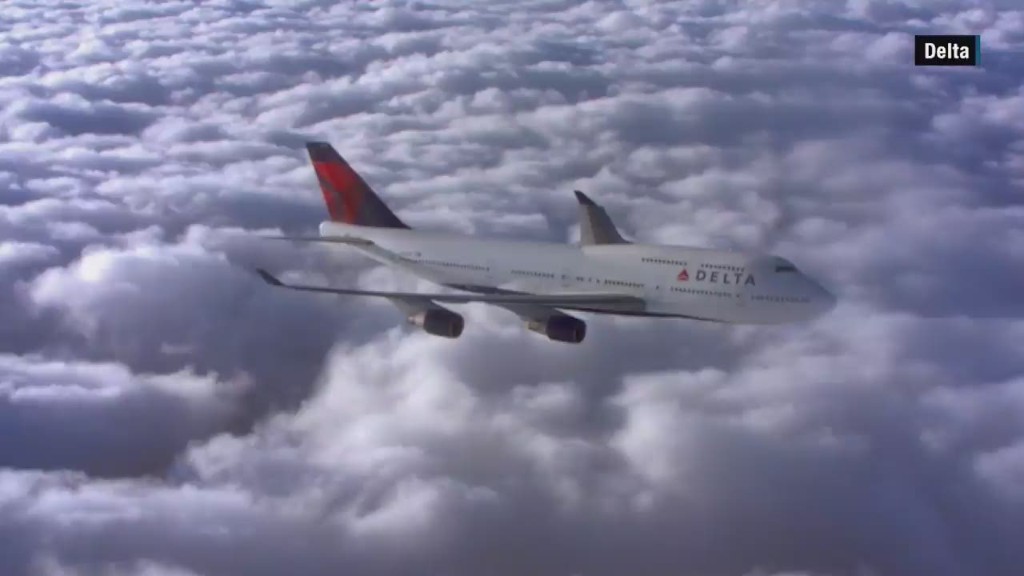
Workers at the nation's largest oil refinery have joined a strike that now includes more than 6,500 workers.
The United Steelworkers union says the nation's oil producers aren't taking seriously the safety concerns of its 30,000 members.
The oil industry says it shares the union's commitment to safety, but rejects the union's concerns about non-union contractors who perform "routine maintenance" alongside union members.
The two sides have been engaged in negotiations for a nationwide contract that covers more than 200 production facilities, including 65 refineries.
Those talks fell apart on Friday, and no further negotiations have yet been scheduled, according to Shell (RDSA) spokesman Ray Fisher.
USW members at nine facilities walked off the job on February 1 after the old contract expired. Each week, more workers have joined, taking a stand while workers at most of the nation's plants remain on the job.
All told, workers at 15 refineries and other production facilities are now on strike.
It is the first large-scale walkout in the industry in 35 years. Most of the nation's oil workers remain on the job, but the USW urged all its members to "prepare to join ULP (unfair labor practice) strike if called upon."
Shell, which is representing the oil industry in the talks, said it is "extremely disappointed" by the union's decision to further expand the strike, which "sets the wrong tone for both parties to move forward."
The company said in a letter to employees on Sunday that its commitment to resolving the dispute does not appear to be reciprocated.
"(W)e're seeing little evidence that the USW's leaders are interested in a meaningful settlement any time in the foreseeable future," the letter read.
Related: Warren Buffett ditched big oil stocks. Dumb move?
Late Thursday, the union told members that management's "new offer fails to improve safety in (an) enforceable way."
But Shell maintained that the use of non-union contractors is not detrimental to safety. "(H)iring flexibility is a proven way to protect our core Shell workforce and the long-term economic viability of our business," the company said.
Sunday's newcomers to the strike include workers at the Port Arthur Refinery, which is the nation's largest. The Texas facility's strike contingency plan, like those enacted at several other facilities, calls for nonunion operators to operate the facility while negotiations continue.
"The company is committed to maintaining safe operations as part of the normal course of business and to providing quality products to our customers who depend upon us," said Motiva, the facility's operator.
Motiva is partially owned by Shell. Two other Shell-owned plants were already part of the walkout.
The union said three other facilities are also joining the strike: Motiva-owned refineries in Convent and Norco, Louisiana, and a Shell-owned chemical plant also in Norco.
United Steelworkers said 1,350 union members are employed between the four facilities.
Related: Cheap oil killed this CEO's $14 million job
Nationwide, USW members process 64% of the nation's oil, according to the union.
While talks continued, there was an explosion last Wednesday morning at a California refinery owned by ExxonMobil (XOM). The plant was not one of the ones where workers were striking, but union officials said the incident "underscores the United Steelworkers' demand for improved safety conditions to protect both workers and communities."
ExxonMobil spokesman Todd Spitler said the company "regret(s) this incident" and makes "the safety and health of our employees, contractors and neighbors" its Number 1 priority.


